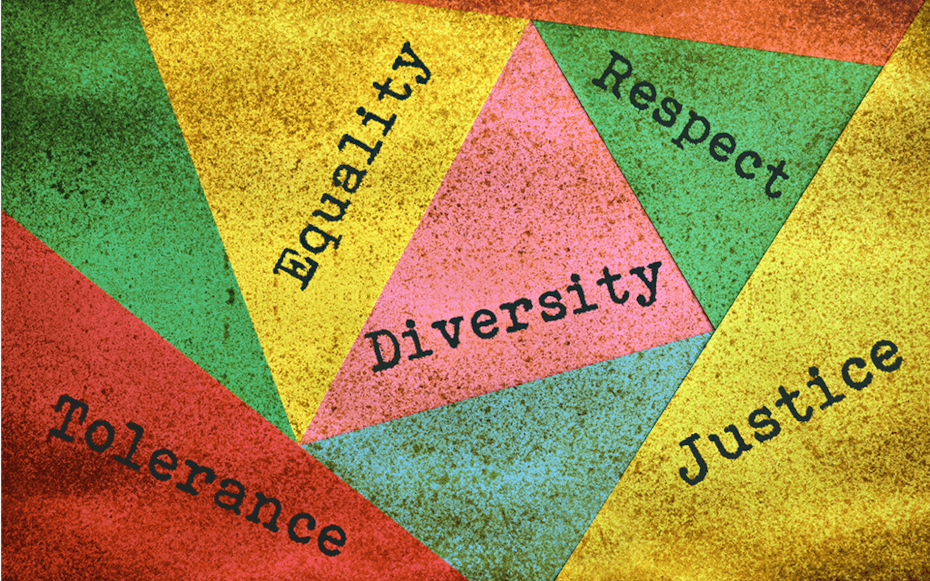Spotlight for Career Services Professionals
As the United States and the world reckoned with the reality of racial inequity, discrimination, and need for social justice through movements like Black Lives Matter in the spring and summer of 2020, University of New Hampshire (UNH) Career and Professional Success (CaPS) looked deeply at the work it does, the services it offers, and the ways it prepares students for the workforce.
“As a broader institution, the University of New Hampshire is committed to building and nurturing an environment of inclusive excellence where all students, faculty, and staff can thrive,” says Raina Sprague, CaPS’ director of employer relations.
“We believe diversity, equity, accessibility, and inclusion are foundational values inextricably linked to achieving our core educational mission.”
Part of that mission is to help employers establish or enhance their work around diversity and inclusion by providing them with resources, consultation, and recognition.
According to Amanda Sophinos, CaPS’ technology and data optimization director, the goal of providing these to employers is to:
- Create a way for UNH students and alumni to easily search, identify, and connect with employers that demonstrate the utmost devotion to social justice and equality through tangible actions.
- Improve employer quality for UNH students and alumni by educating employers on how to imbue social justice, diversity, and inclusion in their recruiting, hiring, and employment practices.
UNH CaPS harvests the resources it offers employers based on its program criteria, which requires the integration of diversity and inclusion in the following spaces:
- Mission statement/vision;
- Retention and recruitment;
- Data- driven goals;
- Pay equity;
- Business operations;
- Community involvement;
- Professional development and training;
- Employee and senior leadership accountability; and
- Internal programming and events.
Resources are sourced from reputable sites, such as NACE, Harvard Business Review, U.S. Equal Employment Opportunity Commission, SHRM, and World Economic Forum. In addition, some are sourced by CaPS’ partners at The Beauregard Center (UNH’s department working to create a more inclusive, equitable, and socially just campus) and the Office of Community, Equity, and Diversity (UNH’s central organizational structure responsible for directing, monitoring, advancing, and supporting diversity efforts). All sources are vetted.
“We happily offer consultation services prior to and/or after an organization has applied to UNH’s Diversity and Inclusion Employer Champion Program,” Sprague says.
“If an employer reaches out inquiring about diversity and inclusion employment and hiring practices, we seek to understand the goals of the organization’s DEI priorities and help answer any questions they have. We find it beneficial to set up meetings to understand their needs and questions, provide them with resources, and encourage their application.”
Employers participating in the Diversity and Inclusion Employer Champion Program must accomplish all seven of the criteria below to be designated a “Champion,” while employers that accomplish at least four of the criteria will be designated a “Rising Champion.” The criteria are that the company:
- Publishes a mission statement, vision, or philosophy centered on equitable access and inclusivity.
- Provides and requires professional development, training, and education on diversity, equity, inclusion, and belonging topics.
- Conducts diversity, equity, inclusion, and belonging programming including, but not limited to, affinity groups, employee resource groups, mentoring, and internal sponsors.
- Exercises a diversity retention and recruitment strategy.
- Holds employees accountable for actively participating in an inclusive culture of belonging and has a bias response process in place should an incident occur.
- Monitors equitable pay across their organization.
- Proves a track record of at least two of the following accomplishments:
• Has a data-driven approach to equity, diversity, inclusion, and belonging initiatives with 1) public or easily accessible data on diversity retention and diversity in leadership, and 2) measurable goals management and executive leadership are held accountable for meeting.
• Operational strategy and decision-making are transparent and measured against objectives promoting sustainability and social equity.
• Equity, diversity, inclusion, and belonging efforts integrate and add value to the local community. Value is created through donation of time, resources, or money to underrepresented community populations or local socially equitable policies
Once an application is received, Jasmine Huffman, the CaPS operations support specialist, reviews it, noting areas in which the employer excels and areas that offer opportunities for improvement. Next, CaPS schedules a meeting to discuss their application further.
“We start these meetings by asking the employer to provide an overview of their current diversity and inclusion initiatives,” Huffman says.
“This overview often highlights the initiatives the employer is particularly engaged in or excited about. Once our team has a firm understanding of the organization’s current state, we compliment them on initiatives that we assess as highly impactful and urge them to continue and grow.”
The CaPS team follows up by discussing the areas it has identified that need improvement and consider ways to advance with the help of specific resources and counsel.
“If we do not accept the employer or if we accept them as a Rising Champion, we discuss specifically what they can do to put their organization in a position to re-apply and be accepted or promoted to Champion status,” Huffman adds.
In the few months since the launch of the program, CaPS has recognized four employers as Diversity and Inclusion Champions and two as Rising Champions.
“Our aim is for the recognition to help the employers stand out to our student community and allow them to connect better with candidates sharing the same values,” Sprague explains.
“We plan to discuss ways we can use this recognition as a requirement for employer promotion to identity-based student groups.”
Those employers accepted at a champion level receive several recognitions throughout the academic year. They receive a “Diversity & Inclusion Champion” label in Handshake that is visible and searchable by students and the employer’s name is listed on CaPS student-centered diversity resources webpage.
Starting this fall, employers accepted at a champion level will also receive an identifier on career event guides and marketing content, promotion on CaPS social media accounts, inclusion in active jobs feed on the CaPS main webpage, and a quarterly shout-out in the internal student leadership newsletter.
“CaPS believes deeply in the [university’s] commitment to diversity, and as such, we want to assist students and alumni in connecting with employers that value diversity and inclusion and demonstrate this through their actions,” Sophinos says.
Sprague and Sophinos identify key elements of UNH CaPS’ diversity and inclusion resources, consultation, and recognition efforts that make them effective:
Recognition Effectiveness
- The employer recognition within Handshake embeds the program into the existing experience of students and employers.
- The criteria for recognition are based on best practices and reputable resources. We cultivated our criteria primarily from a NACE Journal article, “The Role of Career Development Professionals in the Black Talent Recruitment Process;” NACE’s Diversity & Inclusion Self-Assessment; Ibram X. Kendi’s book, How to Be Anti-Racist; and conversations and trainings with CaPS’ partners in UNH’s Office of Community, Equity, and Diversity.
- “Recognized employers are reviewed annually as we believe it is not enough to meet the criteria at one static point in time. To be recognized year over year, employers need to show progress on their commitment to diversity and inclusion,” Sophinos says.
Resource Effectiveness
- Resources are sourced from reputable sites and vetted by multiple staff, including CaPS’ partners within UNH who serve as subject matter experts. The reputability of these sources assures employer partners that the information can be trusted and that it reflects the most current best practices.
- Each criterion has a corresponding resource to provide employer partners with a clear explanation of expectations and actionable steps they can take to meet them.
Consultation Effectiveness
- If an employer inquires or applies to the Diversity and Inclusion Employer Champion Program, they receive a consultation from the CaPS employer relations team to engage them in the program and encourage their continuous diversity and inclusion education. If an employer does not meet program criteria, CaPS offers resources and constructive feedback on what they can improve.
- The CaPS employer relations team providing consultations is committed to their growth and education in this space. “We cannot consider ourselves subject matter experts, but have strong relationships with experts on campus and are committed to deepening our understanding and knowledge,” Sprague notes.
Sprague and Sophinos offer other recommendations for their colleagues in career services for creating and managing effective diversity and inclusion resource libraries and recognition programs, including:
- Partnering with subject matter experts—These should be both internal and external sources.
- Creating evergreen resources
- Holding yourselves accountable—Integrate work into your core mission, strategic objectives, and employee metrics.
- Making it a priority—Commit resources, determine a project manager, and create and implement an annual program review.
- Keep the student experience at the forefront of the initiative—Consider the program from their perspective and gather feedback before its launch.
“While we are proud of the action we’ve taken, we acknowledge there is more work to do and look forward to continuing our efforts in this space,” Sprague says.
“This was truly a team effort and could not have been accomplished without our department’s dedication and passion for taking action. We are committed to continuing to educate ourselves, focus on best practices, and collaborate with other university partners to grow as stronger champions for diversity, equity, and inclusion."





